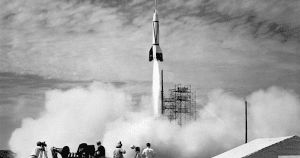 Many politicians are wisely arguing that when it comes to medicine, they should heed medical doctors. They are also clear that when it comes to science, they should look to the scientific consensus. Before anything else, yes. There is a place for dissent from a consensus, for an outside gadfly, but a pandemic is not that time.
Many politicians are wisely arguing that when it comes to medicine, they should heed medical doctors. They are also clear that when it comes to science, they should look to the scientific consensus. Before anything else, yes. There is a place for dissent from a consensus, for an outside gadfly, but a pandemic is not that time.
Oddly, the wise advice that one should heed experts in their field ends when it comes to deciding what to do. Becoming a medical doctor does not make a person an expert in ethics, economics, philosophy, or theology. Our heroic doctors are fighting to make us well, they know what they need to do this job, but have no special expertise in how this can best be done.
What is “best” in this case?
If we take an extreme case, we can see that medicine is not the proper field of knowledge to answer that question. Imagine that a doctor needs equipment and the fastest way to get that equipment was to do X. We can understand that a medical doctor might demand we do X. Imagine, however, that X is unethical or politically impossible, then we should not do X.
Scientists can tell us about science, but they cannot make our ethical or political choices for us. When they tell us what we should do, they have moved to ethics and politics. We should believe them when they tell us what it would take to achieve a particular scientific goal, but we need not adopt that goal as our own.
Suppose (as a hypothetical) that solving a pandemic required increasing global warming. What is the best outcome? What is the balance between the two goods? Some philosophers and theologians are trained in ethics and this is the relevant training to weight ethical choices. The scientist (as a scientist) is a layman in ethics and his expertise in science is irrelevant.
There is also a question of what is politically doable. The best ethical outcome based on sound science might be one thing, but too few citizens want that ideal to make it practicable. Some acceptable, but lesser solution may be doable and the ethical politician knows this to be true. There is a place for the prophet who dies for the best, but a role for the politician who gets us the best that can be over the worst that will be if nothing is done!
We do not live in paradise, yet. We long for perfect justice, but will accept the best that we can get. The politically savvy man, like the Provost of the College program at The Saint Constantine School, will tell us what this is. In the midst of this compromise, we do not give up on our ideals. We do not let scientists, who could support Nazi, Soviet, and racist US regimes, tell us what is ethical.
The scientists who gave my friend a frontal lobotomy, because he was a black boy may have been fine scientists, but they were bad men.











